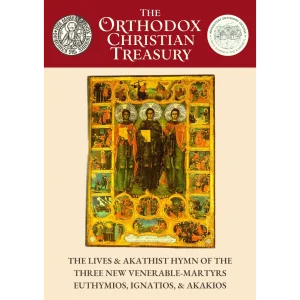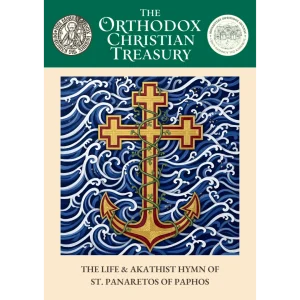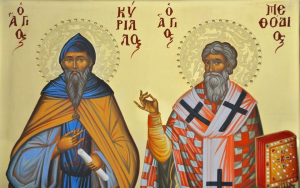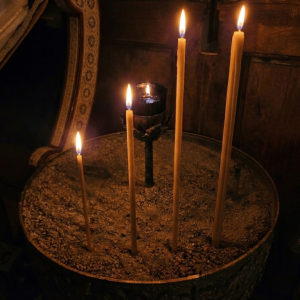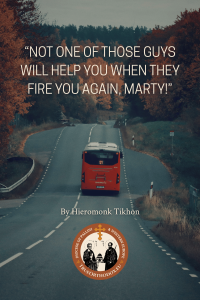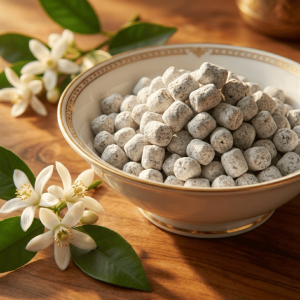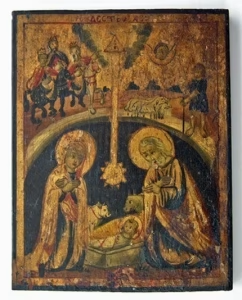Those Who Have Endured to the End
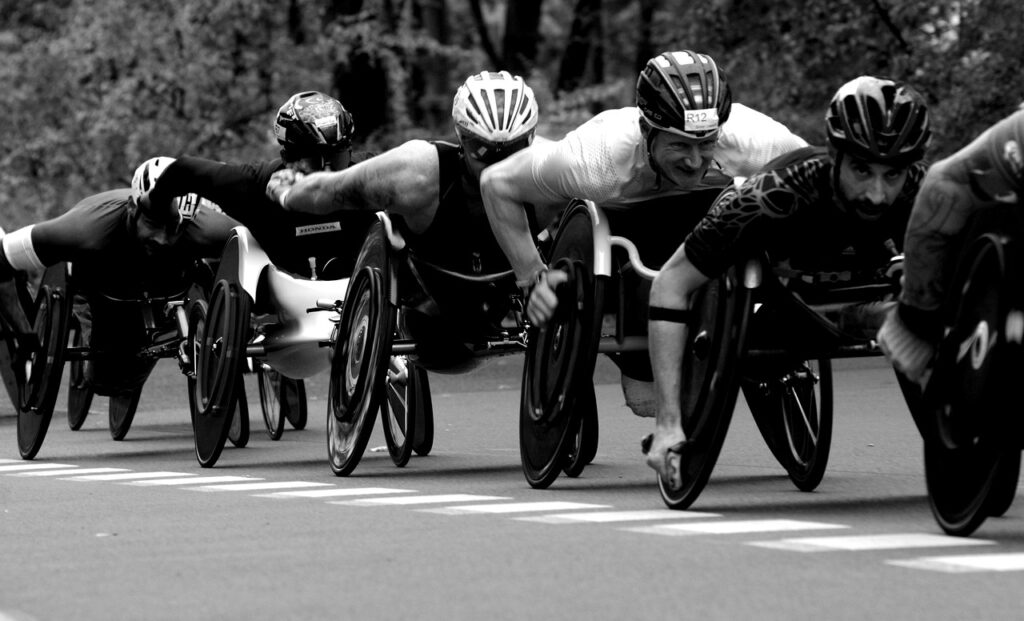
Memories from Harbin by Olga
I was born and raised in China. My grandfather was an officer in the White Army. After the Revolution and beginning of the Civil War, my grandmother left Moscow with the army and, as she always put it, “walked all of Russia on foot.” I graduated from high school in China and also got married there. My memories of China and the Chinese people remain my most cherished. I’m talking about the old Chinese people, who lived before their revolution.
An old man with an oil mill lived near our farm, his name was Ha-Hin. He was the kindest person, who, having learned that a local Chinese woman had lost her only son – her “breadwinner” – in the war, started clandestinely throwing grain over to her in the nights so that she wouldn’t die of hunger. And this was not his only deed that I know of, there were many. I often wonder…. Ha-Hin wasn’t a Christian, he wasn’t baptized, yet he did everything that many Orthodox Christians don’t do, and don’t even try to do. When the revolution broke out, the Communists hung all the rich people “on the rack,” i.e. they were lifted high above the ground, and anyone who considered himself offended could beat them as much as he wanted, even to death. When it was Ha-Hin’s turn, not a single person dared to hit him. Then he was dispossessed and died completely poor soon after. His son was a man with a higher education from abroad and an excellent knowledge of many foreign languages: I saw with my own eyes how he was reduced to delivering orders of coal to homes.
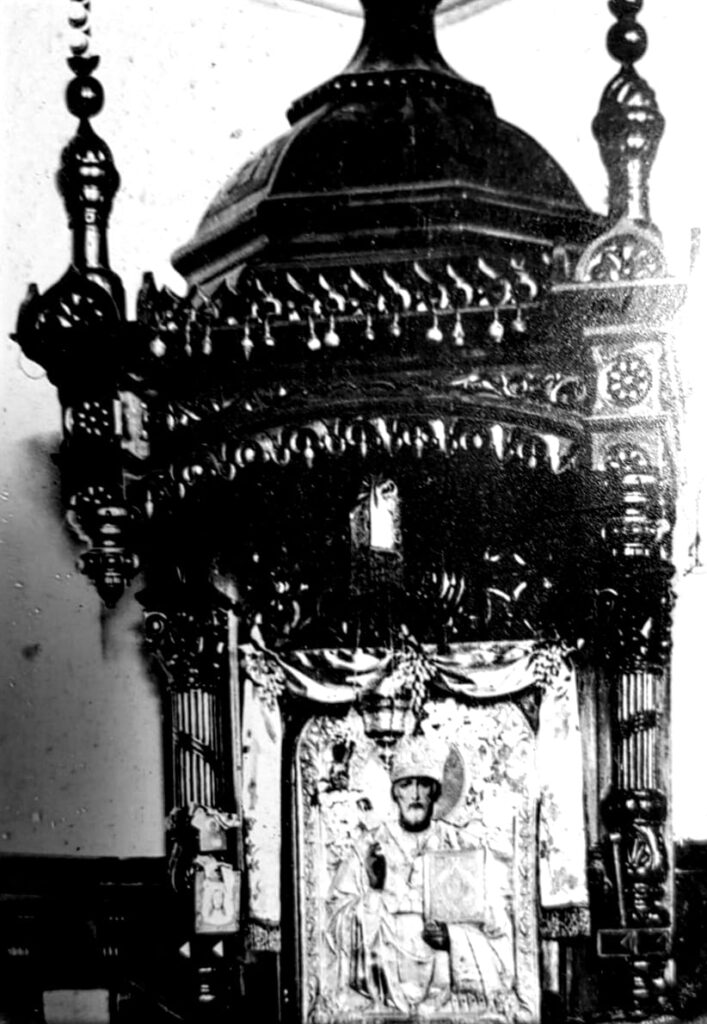
In the corner of the railway station of Harbin stood a beautiful icon and shrine of St. Nicholas, in front of which an unquenchable lamp was always burning. Many put a candle in front of the icon before boarding the train, and I am sure that many who were there have heard about the miracle that happened to one Chinese man who fell into a whirlpool in the local river and began to sink, and only by calling for the help of the Saint was saved. He did not even know St. Nicholas’ name, he simply exclaimed with faith, “old man of the railway station, save me!” and was immediately thrown ashore. Directly across from the station there was a cathedral in the name of St. Nicholas, which was next to a small chapel dedicated to the Iveron Icon of the Mother of God that never closed – one of the nuns from the convent was always on duty there. At any time of the day or night you could put down a candle, or ask for a moleben or panikhida, because there was always a priest on duty in the compound ready to fulfill your request.

The Chinese people before their revolution treated our Orthodox faith with great respect. On the first day of Pascha, all of Harbin was filled with bells. On this day, anyone could climb the bell tower in any church and ring as much as they wanted. The children were especially fond of it.
After the Chinese Revolution, everything changed. We, the Russians, were told – either forfeit all of your privileges as white Russians by taking Chinese citizenship, or leave the country. In all our time living in China we had never been Chinese subjects, and when the Soviet army came to China in 1945 and the Soviet consulate opened many began to take Soviet passports. A coup had begun in China. In a country which had been previously rich, the communists created famine throughout the land. Of course, the communists themselves didn’t starve, but the people did; according to some sources, more than 40 million died from starvation.
Persecution began, especially for the priests who were Chinese: During our stay in China, many Chinese had converted to Orthodoxy, and there were priests who were full-blooded Chinese. In Hailar, which is in northern China, there lived an elderly priest from the Albazin family, his surname was Doobin. He had many generations of Chinese ancestors, and was almost purely Chinese by blood, but still spoke excellent Russian and hadn’t changed his last name. The Chinese themselves called him “Father Doo”. He was at least 80 years old. He devoted his whole life to serving God, and for this he was greatly respected by both the Russian parishioners and the Chinese. There were two churches in the city. The superior of the first church was no longer alive, and so the communists immediately destroyed the church and desecrated its shrines. They had not yet touched the church where Father Doo served, it was important for them that he himself open the church for them. He was summoned for interrogation almost every day and they demanded that he open the church for them, but he always refused, saying, “do what you want with me, but don’t touch the church.” They forbade him to serve in the temple. They laughed and mocked him, saying, how can you, such an old and smart person, believe in some kind of God, which no one has ever seen, and which does not exist! One day, the communists’ patience snapped and they dragged him by their own hands to the temple, broke open the front door and rushed into the altar, throwing icons to the floor that they came across on the way and breaking them. The heart of the old priest could not stand the desecration of the shrines, he fell in front of the entrance to the altar and gave up the ghost. This is how the faithful Son of the Church ended his pastoral ministry. I don’t know if he was given an Orthodox burial, or if he was buried some other way, or simply burned as was customary at the time under the new authorities. Dear reader, remember him in your prayers. This was a priest who stood firm in the holy faith until his last breath and died for Christ. May his memory be eternal!
At that time, there were already very few Russians left in Harbin… some went abroad, some went to Russia. The House of Mercy, where the future Metropolitan Philaret (Voznesensky) had served, was already closed. This was in the early 1960s. In October 1961, (then) Father Philaret, behind closed doors served a parting moleben for my mother, after the moleben she began to kiss the icons and cried, asking what would happen to all these icons, to which Father Philaret replied that the walls would remain but the icons would all be sent abroad, which is precisely what he did. I have recognized many of these icons from the House of Mercy in temples throughout Sydney, as well as the icon of St Nicholas from the Harbin train station which has since resided in the Strathfield cathedral.
I personally knew Father Stefan well. He was full-blooded Chinese. Initially, he was the second priest in the Alekseevsky Church, then after the departure of Father Nikolai (Starikov), he became rector. When the Communists closed the House of Mercy, where I was a parishioner, I moved to the Alekseevsky Church. Where Father Stefan was already the rector at that time. He had a very beautiful voice and a wonderful ear, he learned and spoke Russian well, and read Church Slavonic perfectly. He was in his early-to-mid forties. Father Stefan served us a farewell moleben when I left Harbin in late October, 1962. Time passed, and I learned the sad news that he had been mocked and tortured by the new Chinese authorities. In China, it was customary when a criminal was to be executed, that he be tied with his back to the cab of a truck with an inscription on his chest describing his crime. He would be driven very slowly through all the streets of the city as a warning display to everyone. This mockery sometimes took a whole day, then the convict was shot. Father Stefan was shamed in a worse way. An eyewitness told me that she herself saw that a cross was tied to the rear window of the truck’s cab, and in the middle of the truck Father Stefan was tied by ropes running to both sides of wagon, the entire floor of the truck was covered with finely broken glass. Father Stefan was kneeling in front of the cross, a board with his accusations was tied to his chest. As the truck moved and shook, small pieces of glass went into the knees and legs of the priest, and there were streams of blood all around him. What happened to him next is unknown… according to one eyewitness he simply bled to death. None of us ever saw him again. Most likely, if he did not die from the blood loss after being driven all over Harbin for over nine hours, then he was then shot on Bader Lake outside Harbin as was the accepted custom by the new authorities, and his body would have been unceremoniously buried. Unfortunately, I never knew his last name. This was a true Christian “who endured to the end,” like the first Christians who were thrown to the wild beasts to be eaten. May the Heavenly Kingdom receive him, may God rest his soul!
I often think of others who spent many years in stone quarries and other places of imprisonment, their only fault was that they were Chinese and Orthodox priests. Not many returned home, and not all, unfortunately, “endured to the end,” but it is not for me, a sinner, to judge them, they now answer to the Righteous Judge themselves.
Sinful Olga

